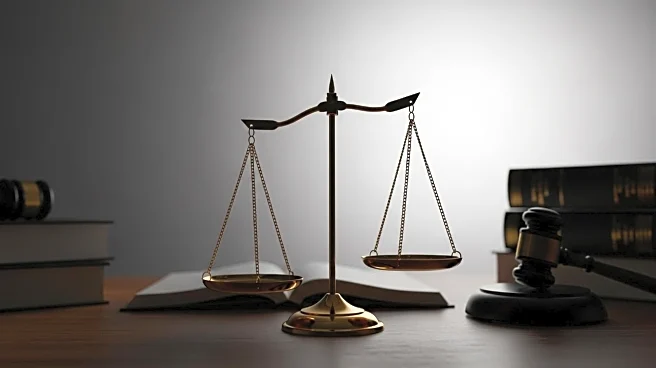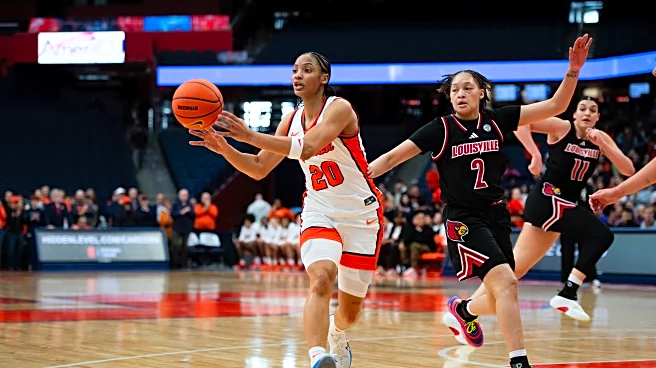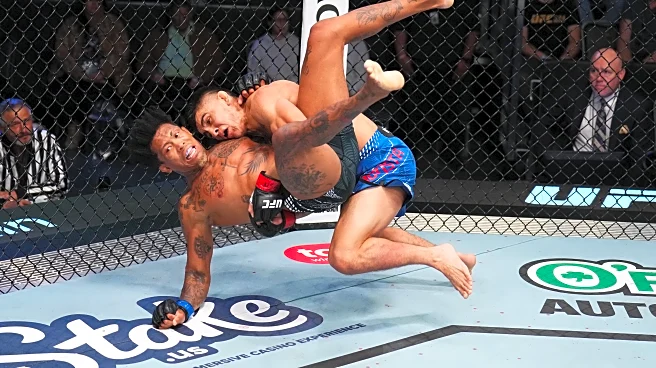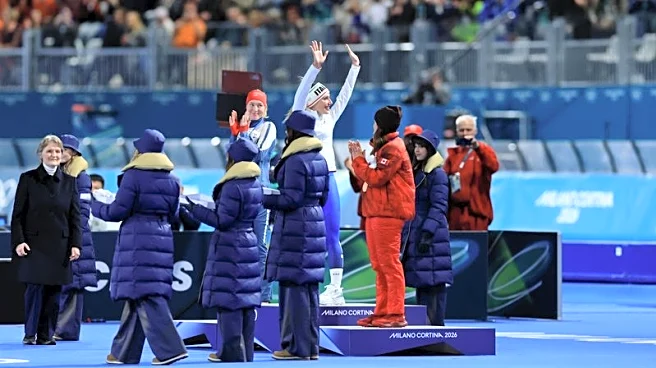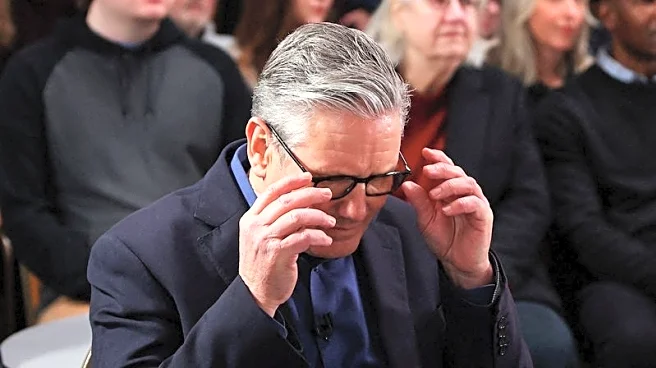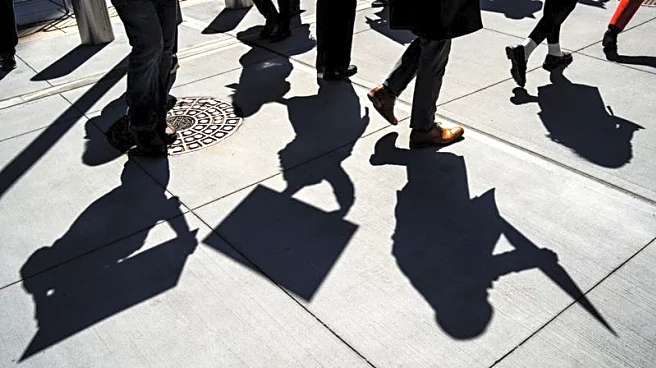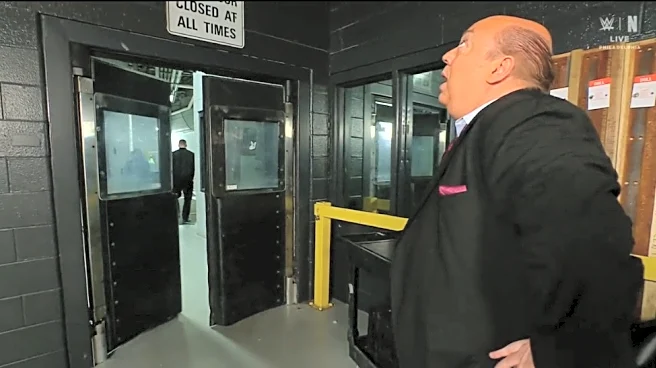What is the story about?
What's Happening?
The federal public defender's office in Los Angeles has filed a motion to disqualify acting U.S. Attorney Bill Essayli, arguing that he is unlawfully occupying his position. Essayli was appointed by U.S. Attorney General Pam Bondi in April, with his term set to expire in late July unless confirmed by the U.S. Senate or a panel of federal judges. However, the White House extended his term by naming him as 'acting' U.S. attorney, allowing him to hold the post for an additional 210 days without confirmation. The motion seeks to dismiss an indictment against Jaime Ramirez, who was charged with being a felon in possession of a firearm, and to disqualify Essayli and his team from participating in criminal prosecutions in the district.
Why It's Important?
This legal challenge highlights concerns over the Trump administration's use of temporary appointments to bypass Senate confirmation for U.S. attorneys. Such maneuvers could undermine the legitimacy of federal prosecutions and disrupt the judicial process. The case against Essayli is part of a broader pattern where similar strategies have been employed in other states, raising questions about the constitutional role of the Senate in confirming U.S. attorneys. If successful, the motion could set a precedent affecting the appointment process and the administration's ability to maintain political allies in key judicial positions.
What's Next?
The U.S. attorney's office in Los Angeles has not yet responded to the motion, and the Department of Justice has declined to comment. The outcome of this legal challenge could influence similar cases in other states, where acting U.S. attorneys face questions about their legitimacy. The federal public defender's office in Nevada has filed a similar motion, and the resolution of these cases may prompt further scrutiny of the administration's appointment practices. Additionally, the Senate Judiciary Chair's stance on the 'blue slip' tradition could impact future nominations.
Beyond the Headlines
The controversy surrounding Essayli's appointment reflects broader tensions between the executive branch and the judiciary over the appointment process. Legal experts warn that bypassing traditional confirmation procedures could lead to invalid indictments, affecting the integrity of criminal cases. The situation also underscores the political dynamics at play, with the administration's appointees often aligning closely with President Trump's agenda, potentially influencing the impartiality of federal prosecutions.
